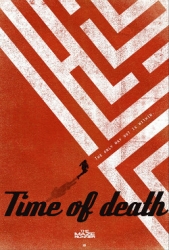A Djinni Named Conscience

A Djinni Named Conscience читать книгу онлайн
Внимание! Книга может содержать контент только для совершеннолетних. Для несовершеннолетних чтение данного контента СТРОГО ЗАПРЕЩЕНО! Если в книге присутствует наличие пропаганды ЛГБТ и другого, запрещенного контента - просьба написать на почту [email protected] для удаления материала
“All the same, you shouldn’t... My father has told me: Hassan, listen to Kerim-aga! Listen to him as you would to me! He won’t give a bad advice...”
“Ha! So you listen to him, kid! While I have my own mind! Have you seen that your Kerim is on the best terms with Vuk’s bandits? Only did I pull out my sword, and he’s already – shish-hashish, yak-teryak! Best friends! I tell you – they give him a part of the ‘mountain share’...”
“Hush! There he goes...”
Peter stirred. Little by little memories were awaking: the road, the strong hand of Kerim-aga that prevented him from falling down, a hot drink smelling of herbs and honey, his sweaty and limp body, his body wants to sleep...
“Where am I?” asked the vagrant.
“In the outskirts of Vrzhik, at an inn. Lie down, lie down...”
He managed to turn his head without effort. Even strange. Peter risked sitting down – he did it from the first attempt. Closed the caftan on his bare chest. “The lute!” belated shivers ran down his spine. “Where’s my lute?!”
“Here’s your lute. Lies in the corner, safe and sound.”
“I have nothing to pay you with. I have nothing except songs...”
Kerim-aga, who was standing near him, glanced habitually over his left shoulder. Waited for an invisible smile, smiled in response. As if delivered someone’s gift to Peter.
The young merchants had already disappeared. Now they were alone.
“All right. You’ll pay with songs. Only later on. Now you need to sleep. Were I late for a day or two, those mountain sheep would torment you to death!”
“I don’t want to sleep...”
“So what? Sometimes you have to do things that you don’t want to... If you wish, I’ll tell you a tale. For you to sleep better.”
“About whom?”
“Let me think. About Chebotache Muyo or Khalil the Falcon – better not, it’s hard to sleep to the clang of blades. About Talimeh the Maiden? No, you’re not in the mood for women. After this you may dream about the evil shtoyzvola, she’ll drink off all your masculine strength...”
Peter nearly burst into laughter. A laughable picture: a sick vagrant and near him a grey-haired caravan-bashi, who is choosing from all the tales known to him the most sedative one.
Yet Kerim-aga didn’t share his gaiety.
On the contrary, the face of the caravan-bashi became in a sudden not so old, but very sad. “So: once upon a time – some thirty, and maybe forty years ago – there lived in Vlera a merchant...”
Once upon a time – some thirty, and maybe forty years ago – there lived in Vlera a merchant. Actually, he became a merchant only later, while at first he was just a caravaneer; then he became a caravan-bashi, began receiving his share from the sales. Little by little he began transporting his own goods – to Durres, to Shkoder, to Drishty, to Lezha, to Vrzhik and even farther, beyond the borders of Arberia: from the Ottoman Porte to Opolie, to the Maintz Mark; a couple of times he even made it all the way to Henning... He was of the Ottomans, but had settled in Vlera long ago, married a native, an Arnavite, within a year brought into his house a second wife and decided not to return to his homeland.
He had one son. The rest of his children were daughters. The father would take his son with him since his childhood. What for, you’ll ask? For him to get used to the caravan trails and nomadic life, to remember different languages, to know how to get on with people, to know about goods: what, where and how much, how to pass old rags for new silk; whom you can get contraband from, whom to sell it to stealthily, and with whom it’s better not to get involved; when there’s need to grease someone’s palm – and when to cock a snook: like hell you’re getting anything out of me!
The son, Jammal Junior, was growing up as a chip off the old block. He delved into trade intricacies willingly, took good note of everything even as a boy; and once he came and asked: “My respectable father, why do you lead caravans? Look, the merchants who trust their goods to you sit in their homes, drink sherbet, enjoy themselves with their wives, and yet earn much more money than you do. You should become a merchant too!”
Jammal Senior laughed, stroked his son on the curly hair: “Good boy, my son, you’ve noticed it right. But your father is also far from being a simpleton. To become a merchant you need money. Here, tomorrow I go to Dragash: I’ve got a proposal to deliver slaves. I haven’t delivered living people yet before, but this is a very profitable business. A couple of times there and back again – and, with Allah’s help, I’ll settle in the town forever. I’ll open my shop, begin trading. And slaves... What of the slaves? Goods, as any other.”
The old caravan-bashi didn’t waste his words. Twice he delivered slaves – from Dragash to Vlera, from Shkoder to Drishty, – returned home with profit and started his own business. His son was in the shop, as one could understand: growing up, helping his father. A crafty lad he was: quick-tongued, feeling where the profit was. Never let out what was his, and sometimes would even snatch from others. So when the time came for his father to die – he left the business to his son with a light heart. He knew he was leaving it in reliable hands.
The son received the inheritance, grieved the due time, mourning his father, and in a short time married off his sisters and got married himself. Then he took a second wife and a third one – the income allowed it. Business prospered, the merchant Jammal grew rich little by little, skilfully concealing part of his profits so as not to indulge the treasury with excess taxes; and he was quite happy – until he became thirty nine years old. “Is this an age for a man?” you would say, and you would be perfectly right.
Because age is not to be blamed.
As well as misfortune and fate...
“Maybe you want to get from me more gold than this miserable chain weighs?!”
“Oh my dear, open your eyes! On this wonderful, excellent chain, the best one in the world, there’s also a plate of pure gold with ancient writings, which increases its value tenfold! They are so ancient that Solomon himself wouldn’t read them, were he to arise from the dead! Pay attention: what interlacing, what embossing! They don’t make these nowadays. And do notice that neither the chain nor the plate have dimmed the least bit. You won’t find better gold even in the sultan’s treasury!”
“He must have scrubbed it out in the morning,” muttered the merchant to himself, so that the jeweller, the feeble Venetian, would not hear him. For the jeweller valued his reputation more than profit, though he knew to bargain not worse than Jammal himself.
“So this wee thin plate of gold costs in your opinion a dinar? And eight kurushes on top of that? Is that so, my dear?”
“Yes, my dear! This thick plate on a triple chain costs much more! Yet my honourable client doesn’t know how to look at the article at all! Either you’re looking at the plate but forget about the chain or you’re looking at the chain but forget about the plate. Also, not eight kurushes but nine, in case you’ve forgotten the price. I’ve taken off one kurush for you in the very beginning, or have you forgotten this too? Maybe you should bind your turban better so that the words that enter your ear don’t fly out from the other one?”
For a minute or two the merchant was pondering: should he get offended with the jeweller or not? And was it possible, because of this offence, to get a reduction of another kurush or two for this bauble? No, not likely. It was his own fault: he’d played forgetfulness too diligently. It was too late to get offended. And he still needed a gift for his second wife. Women love jewellery, while he hadn’t given anything to Rubike for a long time. Plus, the price was quite reasonable, to tell the truth.
“You’ve convinced me, my dear. Let’s agree on a dinar and eight kurushes and a half...”
























